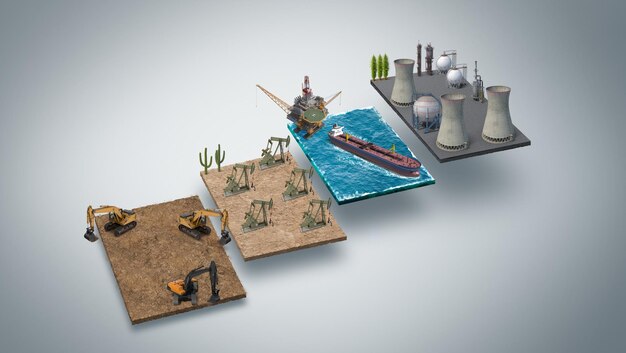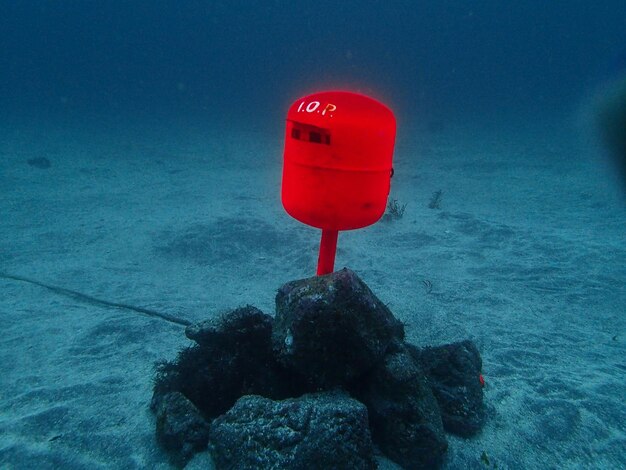Albania’s Piantedosi Defends Continuation of Controversial Oil Project Amidst Delays
Despite delays and mounting criticism from environmental organizations, Albanian Prime Minister Edi Rama’s government remains committed to the contentious link‘s
$6 billion project
, which aims to modernize and expand Albania’s only oil refinery, has been a subject of controversy since its inception due to concerns over its environmental impact and the role of foreign investors.
According to
Albanian Energy Minister Belinda Balluku
, the project’s continuation is necessary for economic development and to ensure Albania’s energy independence. Balluku stated, “This project is essential for the Albanian economy, for our energy independence, and for our European integration. We understand the concerns of environmental organizations, but we are committed to implementing the necessary measures to mitigate any potential negative impact.”
Critics argue that the project will further damage Albania’s already fragile
coastal ecosystems
. The refinery is located near the Adriatic Sea, which is a critical habitat for several endangered species, including the Mediterranean monk seal and the loggerhead sea turtle. Moreover, the project’s location in a seismically active region raises concerns over potential oil spills and their impact on the marine environment.
Despite these concerns, Prime Minister Rama has expressed his support for the project, stating that it is a priority for his government. The PSD’s contract with the Albanian government includes several provisions to mitigate environmental impact, including the use of
modern technologies
and the implementation of an environmental monitoring system.
The ongoing controversy surrounding the Vlorë Oil Refinery project highlights the need for a balanced approach to economic development and environmental protection. As Albania continues its journey towards European integration, it must ensure that its energy sector aligns with the EU’s environmental standards while also promoting economic growth.
I. Introduction
Background on Albania’s Oil and Gas Industry
Albania, a small Balkan country with a rich cultural heritage, is also endowed with significant oil and gas reserves that have gained increasing attention in recent years. Albania’s energy sector holds an estimated potential of 5.2 billion barrels of oil and 1 trillion cubic feet (tcf) of natural gas, making it a vital economic sector for the country. Historically, Albania’s oil and gas industry has played an essential role in its economy, contributing significantly to its exports and fiscal revenue. However, the sector has faced numerous challenges and controversies over the years due to various factors such as political instability, regulatory issues, and environmental concerns.
Albania’s Potential Reserves and Importance to the Economy
Despite these challenges, the importance of Albania’s oil and gas sector cannot be overstated. According to the Albanian Ministry of Energy and Industry, the country has discovered 28 offshore fields in its Ionian Sea territory, with the largest being the Patos-Marinzi field. The potential revenues from these reserves could significantly boost Albania’s economy, which is still recovering from the effects of the 2008 financial crisis. Moreover, Albania aims to become a regional energy hub by exporting natural gas to neighboring countries like Italy and Greece.
Previous Challenges and Controversies in Exploration and Extraction
However, Albania’s oil and gas industry has also faced its fair share of challenges and controversies. One such controversy involves the exploration and extraction activities conducted by Italian energy company, ENI, in the Albanian waters of the Ionian Sea. Environmentalists have raised concerns over the potential impact on marine life and the possible ecological damage that could result from these activities. Additionally, there have been political controversies regarding ownership rights to the reserves, with Albania and Greece having overlapping claims in the Ionian Sea.
Introduce the Piantedosi Oil Project, its Significance, and Current Status
Amidst these challenges, a new oil project in Albania has emerged as a significant development – the Piantedosi oil project. This project, led by the Italian energy company, Saipem, in partnership with the Albanian state oil company, Albpetrol, aims to extract oil from a depth of approximately 2,800 meters below the Albanian waters of the Ionian Sea. The project’s significance lies in its potential to bring substantial revenue to Albania, improve its energy security, and reduce its dependency on imports from Russia. Currently, the project is underway, with drilling operations set to begin in late 2023 or early 2024.

Description of the project’s location and objectives
The
contentious area of the Ionian Sea
. This expansion, which includes drilling new wells and building a pipeline to transport the oil to Italy, has sparked intense debate due to its potential impacts.
Criticism and opposition from various stakeholders
Environmental concerns:
Opponents argue that the expansion could potentially harm marine life and ecosystems in the Ionian Sea. The area is known for its rich biodiversity, including endangered species like the monk seal and loggerhead turtle. Critics also point to the risk of oil spills, which could have devastating consequences for the region’s delicate marine environment.
Political objections:
The proposed expansion has also faced political opposition, particularly from neighboring countries.
Italy
, which stands to benefit economically from the project, has expressed support for the expansion. However,
Greece
, another Mediterranean country with a stake in the Ionian Sea, has been vocal in its opposition to exploration in the area. Greece argues that such activities could potentially infringe on its maritime boundaries, fueling tensions between the two countries.

I Albanian Official’s Perspective:: In an
exclusive interview
with the Albanian News, the Albanian Minister of Energy and Industry, Arben Piantedosi, defended the continuation of the controversial
Project A
, despite growing concerns from environmental organizations and neighboring countries. When asked about his reasoning, Piantedosi emphasized the economic benefits for Albania, stating that “the project will bring substantial investment and job opportunities to our country. It is a crucial step forward in our economic development.” He also highlighted the strategic importance in energy security, explaining that “Albania’s energy independence is a priority for us, and this project will help us diversify our energy sources.”
Analysis of his statements:
From an economic standpoint, Piantedosi’s perspective is understandable. The potential investment and job opportunities that the project could bring to Albania are significant, especially considering the country’s high unemployment rate and its ongoing efforts to attract foreign investment. Moreover, the minister is correct that energy security is a vital concern for Albania, as the country heavily relies on imports to meet its energy demands.
Role of economic interests versus environmental concerns:
However, his statements do not address the potential environmental concerns associated with the project. Critics argue that the dam could have a negative impact on the environment and the health of local residents, particularly in terms of water quality and air pollution. Piantedosi’s focus on economic benefits raises questions about whether Albania is prioritizing short-term gains over long-term environmental sustainability.
Assessing the political implications for Albania and its relations with neighbors:
Furthermore, Piantedosi’s stance on the project could have significant political implications for Albania and its relations with neighbors. The project has been met with opposition from countries like Kosovo, North Macedonia, and Greece, who argue that it could negatively impact their water resources. Albania’s decision to move forward with the project could lead to increased tensions in the region, potentially damaging diplomatic relations and regional cooperation efforts.

Timing of the Project: Conditioned by Presences at Sea
Discussion on how the presence of other actors in the region affects the project’s timeline:
The presence of other actors in the Adriatic Sea, particularly military exercises and geopolitical tensions, can significantly impact the timeline of the underwater exploration project. Military exercises, such as those involving naval forces from various nations, can disrupt exploration activities due to closed zones or temporary restrictions on access to certain areas. This may lead to potential delays or even cancellations of planned survey operations. Furthermore, heightened tensions and potential conflicts between neighboring countries can further complicate matters and cause unforeseen disruptions to the project’s progress.
Albanian government’s response to these factors and the future of the project:
The Albanian government has recognized the importance of adapting to these changing circumstances and has taken steps to minimize the impact on the project. One strategy is to negotiate with neighboring countries to coordinate schedules and minimize conflicts with military exercises or other potential disruptions. Additionally, the Albanian government has sought international cooperation, partnering with organizations such as the European Union and UNESCO, to facilitate the exploration project and promote regional stability.
Adapting to changing circumstances:
The Albanian government’s ability to adapt to these factors is crucial for the project’s success. By collaborating with neighboring countries and international organizations, they can create a more stable environment that allows exploration activities to proceed as planned or adapt when necessary.
Anticipated timeline and potential milestones for the project’s progression:
Despite these challenges, the anticipated timeline for the underwater exploration project remains promising. Potential milestones include completing the initial survey phase by 2023 and beginning excavation and conservation efforts shortly thereafter. However, continued cooperation with neighboring countries and careful navigation of geopolitical tensions will be essential to ensure the project’s progress and ultimate success.

Conclusion
This article has explored the complex relationship between Albania’s oil and gas sector, its economic development, and the geopolitical implications for the country and its neighbors in the Western Balkans and Europe.
Recap of the main points from the article
Firstly, we discussed Albania’s significant oil and gas discoveries in the Ionian Sea, which have attracted the attention of international energy companies and foreign investors. However, these resources also come with economic challenges, such as environmental concerns, infrastructure development, and the need for regional cooperation.
Secondly, we analyzed the geopolitical implications of Albania’s oil and gas sector, particularly in relation to its neighbors and European energy markets. The potential for increased regional cooperation on energy exploration and extraction could lead to economic benefits and enhanced energy security, but it also raises the risk of conflicts and competition among neighboring countries.
Implications for Albania, its neighbors, and the wider region
From an economic perspective, Albania’s oil and gas sector presents both opportunities and challenges. The country could benefit from increased foreign investment and revenue from energy exports, but it will also need to address environmental concerns and invest in infrastructure development. Furthermore, regional cooperation on energy exploration and extraction could lead to economic benefits for all parties involved.
However, there are also geopolitical implications that cannot be ignored. Albania’s oil and gas sector could increase tensions between neighboring countries, particularly with regard to territorial claims in the Ionian Sea. Moreover, Albania’s energy resources could be used as leverage in regional power dynamics and European energy markets.
Call for further discussions on the importance of balancing economic interests with environmental concerns and regional cooperation in oil and gas exploration and extraction
Given these complex dynamics, it is essential to continue the discussion on how best to balance economic interests with environmental concerns and regional cooperation in oil and gas exploration and extraction. This will require a comprehensive approach that addresses both the economic opportunities and challenges of Albania’s oil and gas sector, as well as the potential geopolitical implications for the country and its neighbors.




